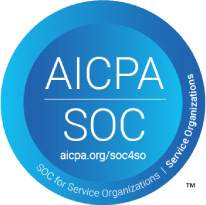Published on April 1, 2020 by Greg Mays
When receiving a licensing audit request from Oracle, your first instinct may be to panic. Whether or not you have a good grasp of your license standing and are confident your Oracle licenses are compliant, an audit is still a grueling process to go through. However, there is a formal license agreement and process that allows reasonable audits of usage and compliance with every Oracle license bought. This doesn’t mean that there aren’t best practices to ensuring a less painful audit, though.
Below are some best practices we follow to help guide our clients through an Oracle audit request:
- Provide the information requested – and nothing more
The best policy in a licensing audit is to provide only the information requested. Don’t volunteer information beyond what’s been asked for. - Keep track of all correspondence and review all requests and responses carefully
It’s good house-keeping to make sure every communication you have with an auditor is recorded and reviewed very carefully. - Know what’s going to requested
While you may not be able to know exactly what information the auditors will request, it’s helpful to know what they would typically ask for. Items typically requested in an audit include: listing of the products and licenses your organization is using, the hardware platforms and configurations (CPU type/size especially) in use for those products, output from various OS and/or database scripts, and running of certain processes or procedures. For a more comprehensive list, download our whitepaper via the form below. - Be aware of how to handle being out of compliance
The situation will be assessed by the involved Oracle representatives and Oracle’s LMS (License Management Services) to determine areas that are out of compliance or not matching with licenses. They will work with you to determine additional licenses required and/or other options for resolution. - Follow industry best practices to keep your licenses compliant before being audited
It's hard to follow license compliance rules if you're unsure what they are. Oracle licensing best practices are guidelines to make sure your data is licensed and safe. These include cleaning up named user or CPU license surplus or deficits, reconciling minimum license requirements, purchase of any additional required licenses, etc. To be safe, audit yourself before anyone else does!
For more information, visit our Database Compliance Audit page and download our Oracle Licensing Whitepaper from our whitepaper page.
Need more answers? Click below to ask our expert DBAs any Oracle licensing questions you might have.
-1.png)




